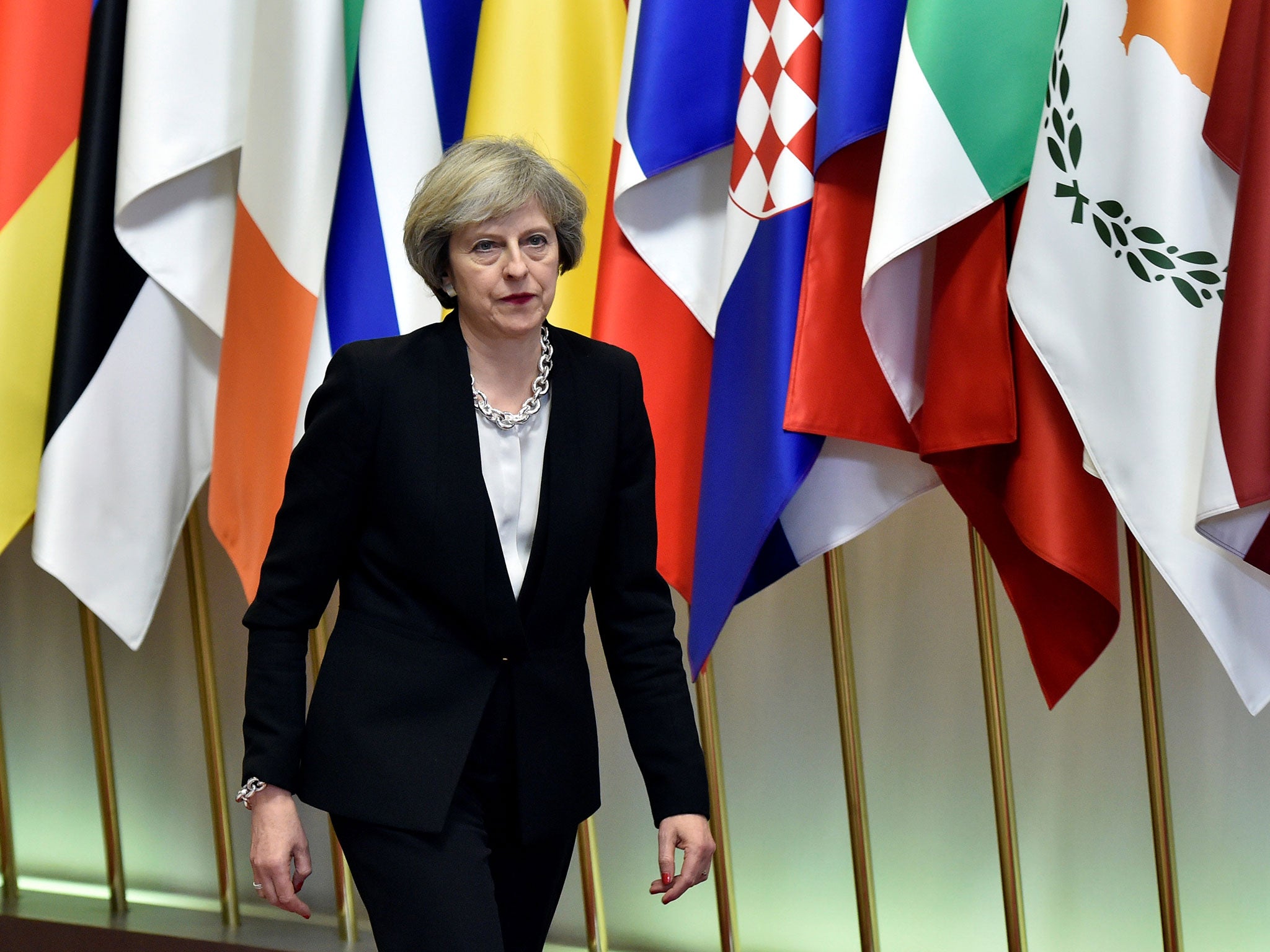Your support helps us to tell the story
From reproductive rights to climate change to Big Tech, The Independent is on the ground when the story is developing. Whether it's investigating the financials of Elon Musk's pro-Trump PAC or producing our latest documentary, 'The A Word', which shines a light on the American women fighting for reproductive rights, we know how important it is to parse out the facts from the messaging.
At such a critical moment in US history, we need reporters on the ground. Your donation allows us to keep sending journalists to speak to both sides of the story.
The Independent is trusted by Americans across the entire political spectrum. And unlike many other quality news outlets, we choose not to lock Americans out of our reporting and analysis with paywalls. We believe quality journalism should be available to everyone, paid for by those who can afford it.
Your support makes all the difference.Theresa May has signalled some backing for a transitional period which allows business in the UK to adjust to Brexit.
But the Prime Minister indicated that such an arrangement must not be used to delay Brexit or undertake further negotiations.
Ms May told MPs on the Liaison Committee that she expects to complete withdrawal negotiations and set out future trading arrangements with the EU within two years after triggering Article 50.
She also refused to explicitly commit at the hearing to giving Parliament a vote on the final Brexit deal that she negotiates.
Asked about potential transition arrangements, she said: "When people talk about transition, often different people mean different things by transition.
"There are some people who will talk about transition as a deliberate way of putting off actually leaving the European Union.
"For others transition is an expectation that you can’t get the deal in two years and therefore you’ve got to have a further period to do it.
"But if you think about the process we’ve got to go through once you’ve got the deal, once we’ve got the new arrangements, there will of course be a necessity for adjustments for the new arrangements, for implementation of some practical changes."
Ms May explained the UK will not be seeking an extension of the two-year Article 50 process, which would require a vote from all 27 EU member states, during its negotiations with the bloc.
At the UK’s point of exit, legislation called the Great Repeal Act will come into force bringing all EU law under British auspices, added the Prime Minister.
Ministers will then decide which parts of the newly adopted EU law to keep and which parts to ditch.
Ms May also promised to give more details of her Brexit plan early in the new year.
She said: "I will make a speech early in the new year setting out more of our approach."
However, she declined to tell the Committee when she would publish a plan for Brexit, as promised by the Government.

Join our commenting forum
Join thought-provoking conversations, follow other Independent readers and see their replies
Comments